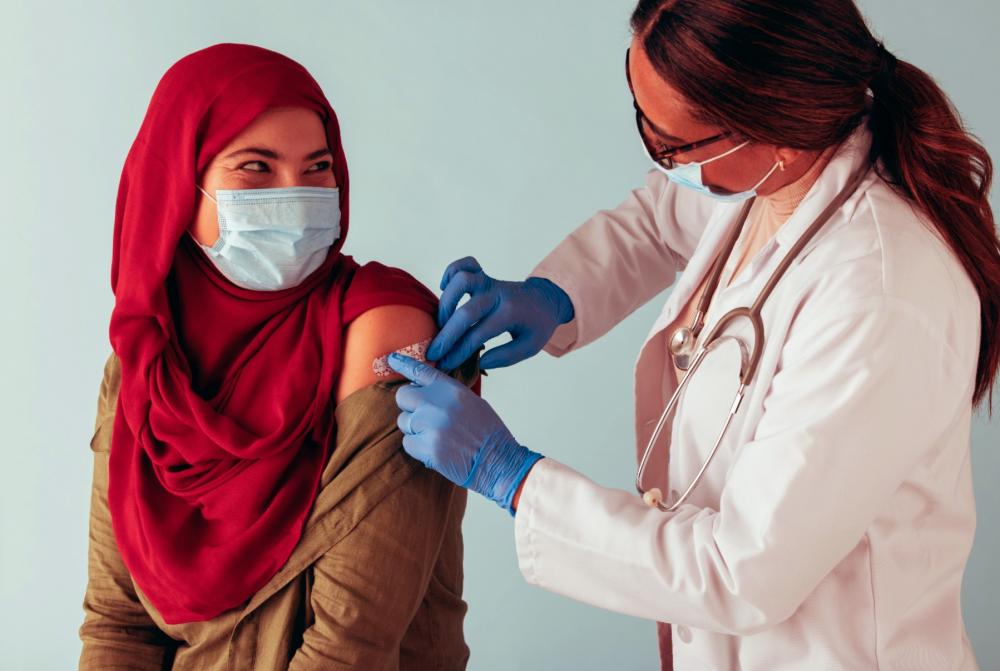
While taking care of patients, it is very important to address their spiritual and cultural needs. Studies in the nursing career have depicted a very positive connection between spirituality and the results of a treatment procedure. Spiritual needs are a very crucial aspect that needs to be taken care of while providing treatment to patients (Oakley et al., 2010; Joint Commission, 2005). Physical and spiritual health is equally important. Health tacticians are therefore supposed to ask about the spiritual needs and religious background of the patient (Akhatar, 2002). The main aim of this paper is to establish an effective evaluation procedure when caring for Muslim patients. Generally, there are very important aspects of Islam that are highly consulted before any treatment can be administered on them.
General Muslim Care Aspects
Open dialogue and excellent communication is a very important aspect of a successful culturally sensitive health care service delivery. Preferably, health care is highly recommended to be offered by people belonging to the sex of the patient. This has been made possible with the increasing number of male nursing professionals and many more females taking on medicine. Patients of the female gender have a very crucial privacy and modesty objective. In a number of cases, a close relative of the same sex could help the sick person to take a bath. Since Muslims wear clothes that do not show their body shape (Sheikh and Abdul, 2000), the attire in hospitals should be offered in a manner that meets such requirements. If that is not made possible, the patient could ask the advice of the hospital staff to bring along with them some suitable clothing.
When taking care of a Muslim patient, the needless touching in between people of different sex is highly discouraged. The left hand specifically is considered unclean. Therefore, the right hand is preferred for use in administering treatment and in feeding. Concerning Muslim males, a beard is a very vital symbol of religion. Just like would be the case for any other sick person, it is always recommended that permission be sought before shaving all or part of the beard and should particularly be made by a man (University of Virginia Health System, 2003).
A Muslim patient without freedom to move could carry out prayers as they seat or on the surface lying down. Providers of health care must be very much aware of such requirements and should not disturb the patient while praying (Hickman, 2006). Muslim patients could need additional or special help after duties in the toilet. It is of great importance that the Muslim patients are provided with the needed help to clean their bodies after emptying their bowels. It does not matter even if this would be carried out in a pan. The availability of a big jug in the toilet/bathroom is much welcome since Muslims make preference to washing with water that is running after visiting the toilet/washrooms. For Muslims, their holy day is Friday. Therefore, health practitioners should know that the sick Muslim patient could receive many visitors than what is normally anticipated.
Handling Muslim Births
For Muslims, a fetus of 120 days and above is a viable human being. If this viable creature either through an intra-uterine death or a miscarriage having reached the age of 120 days, it should be given a decent burial like any other grown up human being. Thus, a fetus falls a victim of such circumstances should be handed over to the parents for the conducting of a proper funeral. Abortion for Muslims can be allowed if the life of a mother is threatened by pregnancy. Some Muslim parents would prefer to bury the placenta and this should not be considered abnormal in case such request is made. It is very important for the newborn child to be given a prayer call with a recitation made in both years immediately after birth. Chances are that the parents could need a professional like a Mufti, an Imam or Sheik to carry out these acts (The Middle Eastern Community, 2006).
It is a conventional religious ceremonial to shave off the newborn babies head seven days after the child was born or around that time. Circumcision is conducted on every male Muslim child (Kobeisy, 2004). The timing of such an event changes although it should be carried out before the child reaches puberty. The Islamic faith does not support female genital mutilation as practiced by some Muslims from Asia or Middle East. Therefore, health practitioners should be wary of these practices amongst Muslims from diverse cultural backgrounds in order to take care of every patient from the Muslim community.
Dealing with Muslim Deaths and Organ and Blood Donation
Death is regarded as an occurrence that has been predestined by Allah. It is the start of eternal life. The more religious families become, the more they appear unbecomingly accepting and calm by western culture. For Muslims, grieving is permitted for a maximum of three days. However, a widow may be allowed to mourn for about four months and ten days. Since death is seen as predestined by God himself, Muslims do not approve any health care that could hasten the death of a Muslim patient for whatever reasons, even in the most humane ones. In the event that a Muslim patient is in a coma, preference is made for the patient to face Mecca found in Australia that is in most cases approximately west-north-west having the right shoulder facing the same direction too (The Middle Eastern Community, 2006). It is very vital for Muslim patients to make a recitation of Qur'an or conduct prayers in the patient’s presence or in a nearby room.
The right shoulder and the face of the deceased Muslim must be turned in the direction as stated. The entire body of the dead person should be covered with a sheet and must be held as little as it can be possible. The body should be handled with much respect solely by an individual of the same sex. No cross should be placed over the body of the dead person. Again, the body must not be washed since this would be required as a part of the final special religious festival prior to burial. Burials for Muslims are carried out not long after death. In fact it should be almost immediately. If possible, the burial should be conducted the same day the person died. The eyes must be closed; the lower jaw must be bandaged carefully to the head to make sure that the mouth does not gap. The body can then be straightened, while the feet are tied in one place together (Winter and Williams, 2002). Muslims freely accept transfusions of blood and transplants of different organs of human beings. Muslims are also permitted to donate organs and blood. Saving other people’s lives is very valued as a work of virtue.
Conclusion
Having realized the ever-increasing number of illegal immigrants in out islands, a holistic health care approach should recognize that spiritual and health matters are interrelated for many patients. Maltese nurses are becoming more exposed to different patients with different cultures and religions. The fact that Malta is in the Mediterranean and a country is in the European Union, the health care system is exposed to a variety of people. In order to be in a position to carry out an accurate evaluation and offer sensitive and competent care, professionals of health care should take into account the spiritual and religious inclinations along with other cultural convictions and beliefs (Andrew and Valerie, 2009; Fowler, 2009).
From the experiences during our clinical placement, we have come by varied situations where Muslim patients were not treated holistically, especially with regards to their culture and religion. We noticed that this may be the result of the lack of education amongst health care professionals. The main areas of concern included food, hospital clothing, gender issues (mixed health care staff and husband examination), guidance on spiritual matters and language barrier among others. Spiritual matters on death care, the role of priests in taking care of Muslim patients and time to prayer are very vital. Engaging the Muslim patient in the treatment process works on well through an informed consent where health care staffs are trained to deal with patients and their situations.
References
Akhatar, A. G. (2002) Nursing with dignity. Nursing Times 16 April 2002: 40.
Andrew, G., and Valerie, Y. (2009). Spiritual Dimensions of the Perioperative Experience. The AORN Journal. 89 (5). 875-82.
Chaplaincy Services, Religious Beliefs and Practices Affecting HealthCare (2003). University of Virginia Health System.
Fowler, M. (2009). Religion, Bioethics and Nursing Practice. Nursing Ethics 2009 16 (4). Web.
Hickman, J. (2006). Faith community nursing. Lippincott Williams & Wilkins
Joint Commission, (2005). Evaluating your Spiritual Assessment Process. The Source, Volume 3, Issue 2
Kobeisy, A. 2004. Counseling American Muslims: understanding the faith and helping the people. Westport, Conn.: Praeger Publishers.
Oakley, E.; Katz, G.; Sauer, K.; Dent, B. and Millar, A. (2010). Physical Therapists' Perception of Spirituality and Patient Care: Beliefs, Practices, and Perceived Barriers. Journal of Physical Therapy Education 24 (2): 45-52.
Sheikh, A., and Abdul R., eds. 2000. Caring for Muslim patients. Abingdon, Oxon: Radcliffe Medical Press.
The Middle Eastern Community (2006). [Cultural Diversity in Nursing]. Retrieved April 6, 2013 from http://www.culturediversity.org/mide.htm
Winter, T. J., and Williams, J. A (2002). Understanding Islam and the Muslims. Louisville, KY: Fons Vitae.




